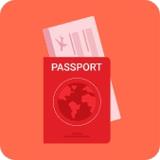

Thailand Awareness Guide (Laws & Ethics)
- Introduction
- Local laws and rules in Thailand
- Local Culture in Thailand
- Local Ethics in Thailand
- Laws to Abide by in Thailand
- Why you should respect the local laws in Thailand as a traveller?
- What to do if you run into legal trouble in Thailand?
- Where to find help in Thailand as a tourist?
- Things to avoid when in Thailand
- Take Home Lessons
- FAQs
Thailand is a land of diverse cultures and unique traditions. It is no wonder that the country has its own set of rules and regulations that tourists must abide by during their stay. This page will give you all the essential details on Thailand's local laws, ethics, culture, etc.
Local laws and rules in Thailand
Here are some main local laws and rules that tourists visiting Thailand must be aware of prior to their trip;
1. Laws on driving:
The legal age for driving a car in Thailand is 18, while the age requirement for being able to rent a car is at least 21. You have to drive the vehicle on the left side of the road, wear a seatbelt in a car, avoid driving under the influence.
Travel tip: Understanding road signs in Thailand is easy because most of them feature instructions in English alongside the Thai language.
2. Laws on medications:
Travellers under treatment are allowed to carry medicines in Category 2. However, you will need to apply for permission at least 14 days prior to your arrival. Upon reaching Thailand, you must declare your medication right away at the customs red exit.
Travel tip:The medication you are carrying on your Thailand trip must be in their original package. The amount of medication you are allowed to bring is for a maximum of 90 days of use.
3. Laws on photography:
Street photography is legal in Thailand, however, you can't take pictures of certain places or entities without permission. Tourists can legally carry drones into the country but won't be able to use them without registering them first at CAAT or NBTC.
Travel tip: While photography on the premises of the Grand Palace is allowed, there are some areas where it is prohibited. For instance, photography is restricted inside the Temple of the Emerald Buddha.
4. Laws on endangered animals:
During your Thailand visit, you may come across a few individuals participating in the illegal wildlife trade. It is completely against the law, and individuals caught doing so can face large fines and imprisonment.
Local Culture in Thailand
Here are a few key details about the local culture in Thailand that tourists must know about;
1. People:
Thailand has more than 70 ethnic groups, but around 96% of its whole population is represented by Tai, Central Thai, Northern Thai, Isan and Southern Thai people.
2. Language:
Thailand's official and national language is Thai, which is a part of the Tai-Kadai language family.
Travel tip: Dressing modestly in public is an essential part of Thai culture. So, make sure to respect it during your stay there and wear non-revealing clothes that cover the chest, knees and shoulders, especially when visiting someone's house or a religious site.
3. Religion:
The vast majority of the local population in Thailand, around 95%, are followers of Theravada Buddhism. The second most followed religion in the country is Islam.
Travel tip: Before planning your trip, check the latest updates on Thailand Visa requirements, including Thailand visa fees, to ensure compliance. For Indian passport holders, “visa free Thailand for Indians” may apply for until the first 90 days, making it easier to explore the country’s vibrant culture.
4. Art:
The artistic side of Thai culture is divided into several sectors, such as drama and film, dance, music, crafts, visual arts and so on.
Local Ethics in Thailand
Here are a few examples of local ethics that tourists can follow during their stay in Thailand;
- The traditional style of greeting in Thailand is called “wai”. It includes pressing your palms together in a “prayer-like” stance and slightly bowing your head. You can use wai to greet locals, elders
Laws to Abide by in Thailand
As a foreign traveller, there are a number of Thai laws that you must abide by, such as;
- Smoking: The rules prohibit individuals to smoke in public areas or buildings. You are only allowed to smoke in designated zones, mainly open-air areas. Smoking is also banned inside many pubs, restaurants and bars.
Why you should respect the local laws in Thailand as a traveller?
Here's why you should respect and follow the local laws in Thailand as a tourist;
What to do if you run into legal trouble in Thailand?
In case of legal trouble in Thailand, here's what you need to do;
Where to find help in Thailand as a tourist?
As a tourist, here are a few places where you can find help in Thailand;
Things to avoid when in Thailand
Keynote for new visitors: The quality of air in some Thai cities can get quite bad due to heavy pollution. Consider downloading an app called “AirVisual” to stay updated on the real-time air quality in all major Thai cities, like Bangkok, Chiang Mai, etc.
Here are some important things to avoid and tips to follow in Thailand that tourists must know about;
Take Home Lessons
It is important to consider a foreign country's local laws and ethics when planning a trip there. Thailand is unique in its culture and traditions, making it quite different from other Southeast Asian countries. Make sure to respect and abide by the local rules in Thailand to stay outside of any trouble throughout your vacation.
Also, Thailand is famous for offering unforgettable experiences to all travelers. When booking your Thailand flight ticket, it is better to opt for travel insurance for Thailand to cover any unforeseen emergencies like lost wallets or medical expenses. In today’s age, getting travel insurance online is quicker than ever, which is why having an international travel insurance is not just easy, but crucial.
FAQs
1. What is the fine for not wearing a helmet in Thailand?
The fine for not wearing a helmet when riding a motorbike in Thailand is up to 2,000 THB.
2. Is photography allowed inside the temples in Thailand?
Photography and videography are allowed in most temples, except for a few. In some cases, temples allow taking pictures on their outside grounds but not inside.
3. Where is the Indian Embassy located in Thailand?
The Indian Embassy in Thailand is located at 46, Prasarnmitr, Sukhumvit, Soi 23, Bangkok - 10110.
4. Is it rude to greet with handshakes in Thailand?
The traditional and widely accepted way to greet in Thailand is by offering a Wai. Shaking hands as a way to greet someone is not common in the country.








 Health Insurance
Health Insurance  Travel Insurance
Travel Insurance  Car Insurance
Car Insurance  Cyber Insurance
Cyber Insurance  Critical Illness Insurance
Critical Illness Insurance
 Pet Insurance
Pet Insurance
 Bike/Two Wheeler Insurance
Bike/Two Wheeler Insurance  Home Insurance
Home Insurance  Third Party Vehicle Ins.
Third Party Vehicle Ins.  Tractor Insurance
Tractor Insurance  Goods Carrying Vehicle Ins.
Goods Carrying Vehicle Ins.  Passenger Carrying Vehicle Ins.
Passenger Carrying Vehicle Ins.  Compulsory Personal Accident Insurance
Compulsory Personal Accident Insurance  Travel Insurance
Travel Insurance  Rural
Rural 










